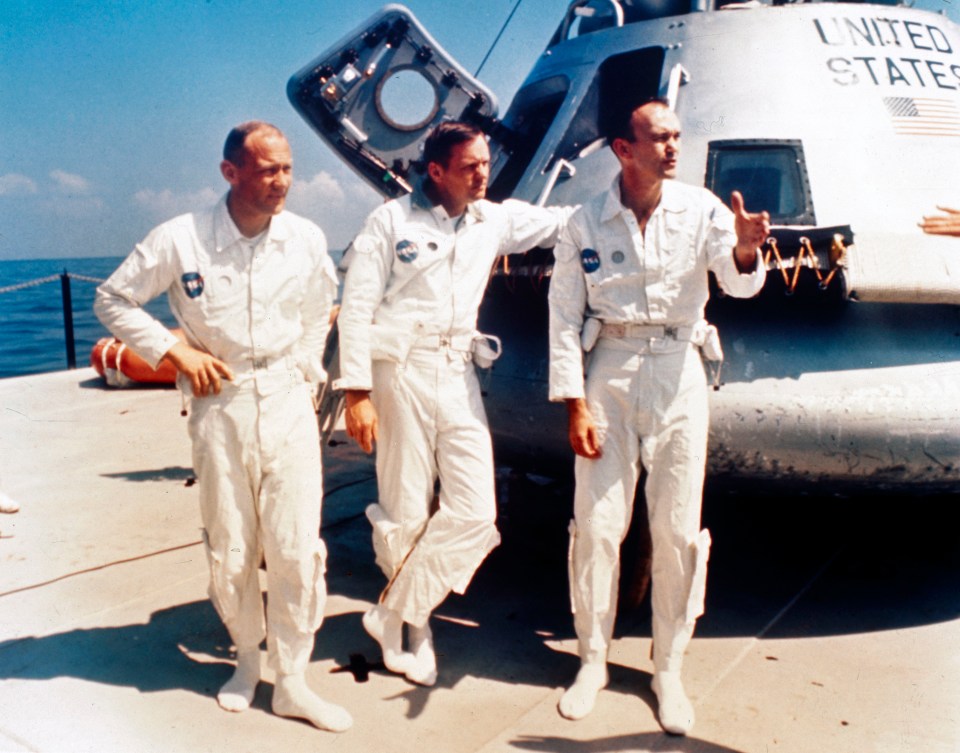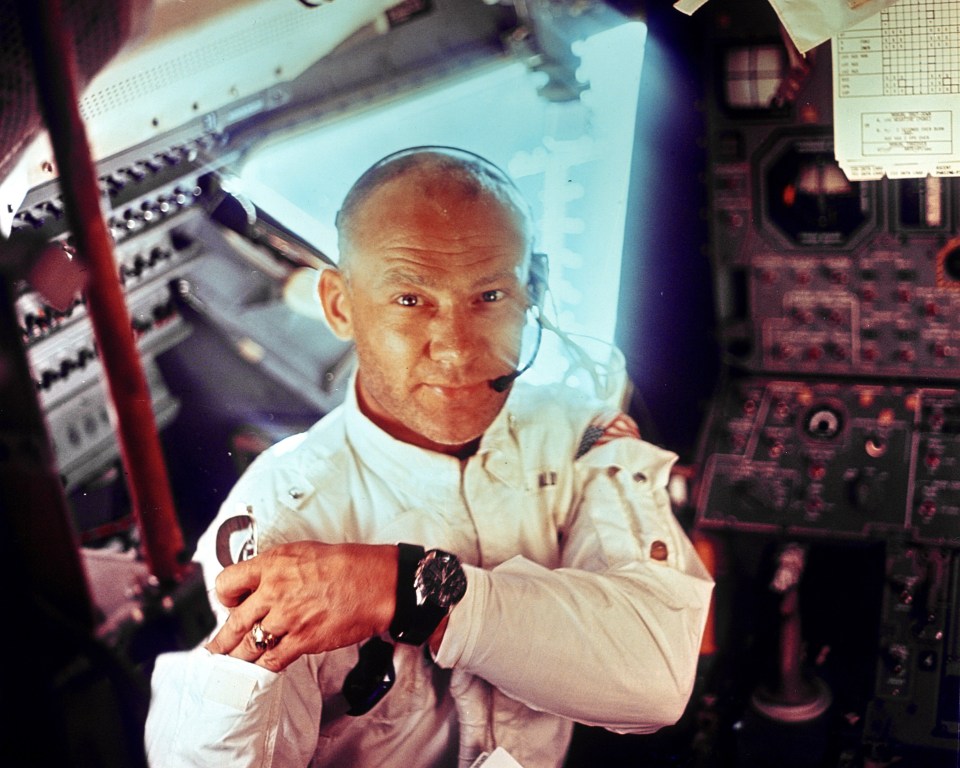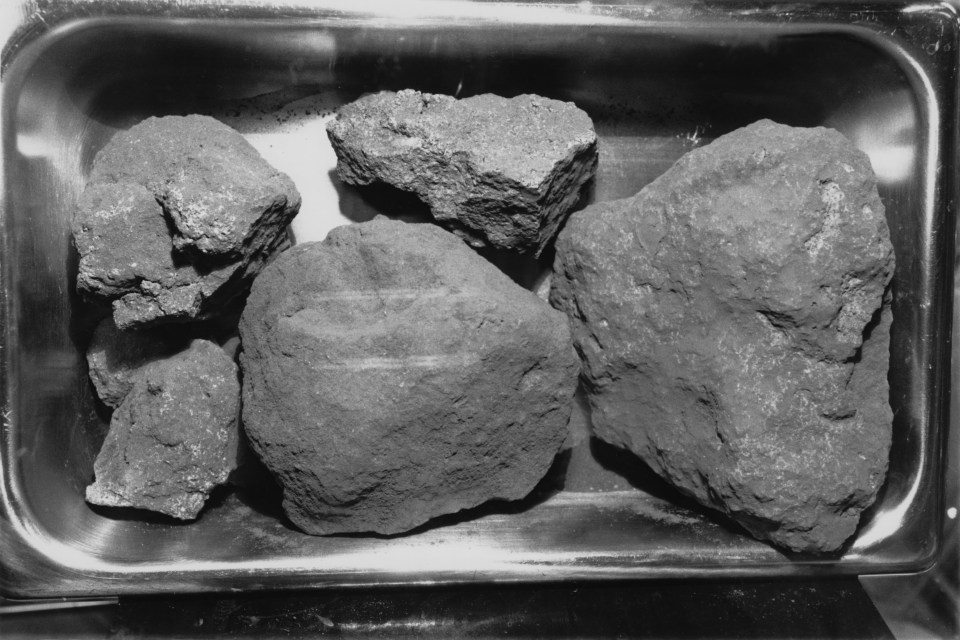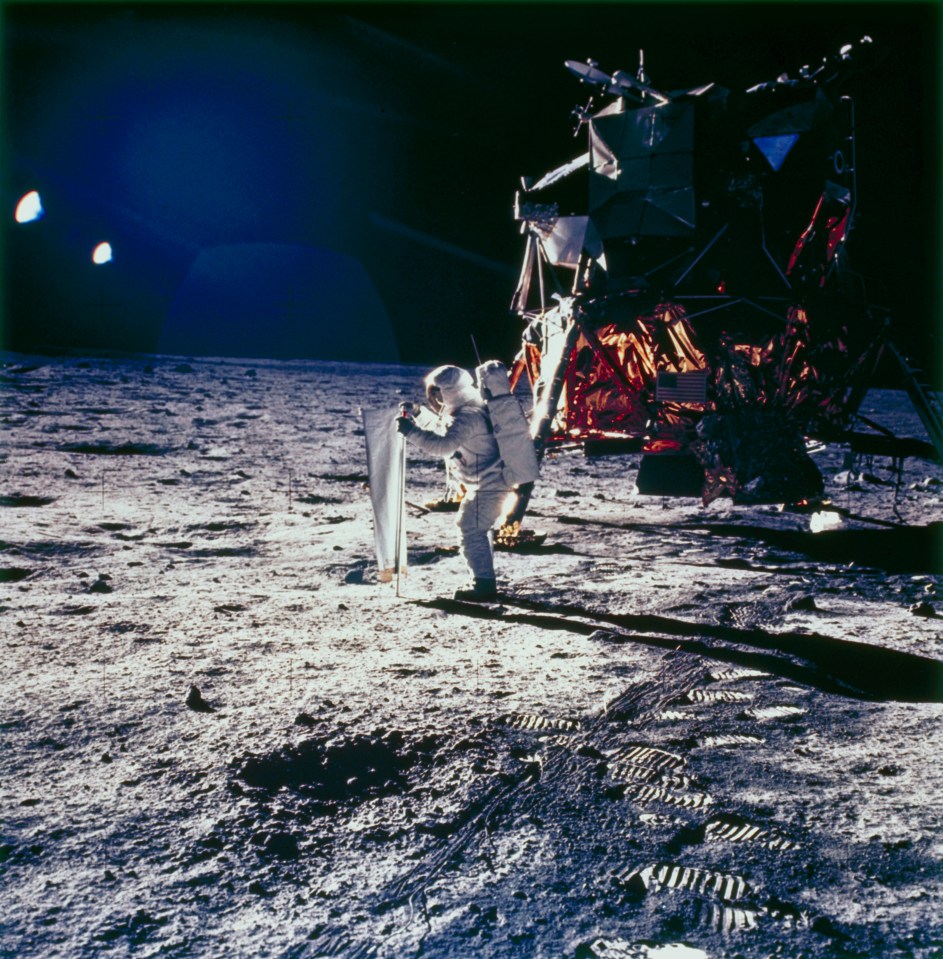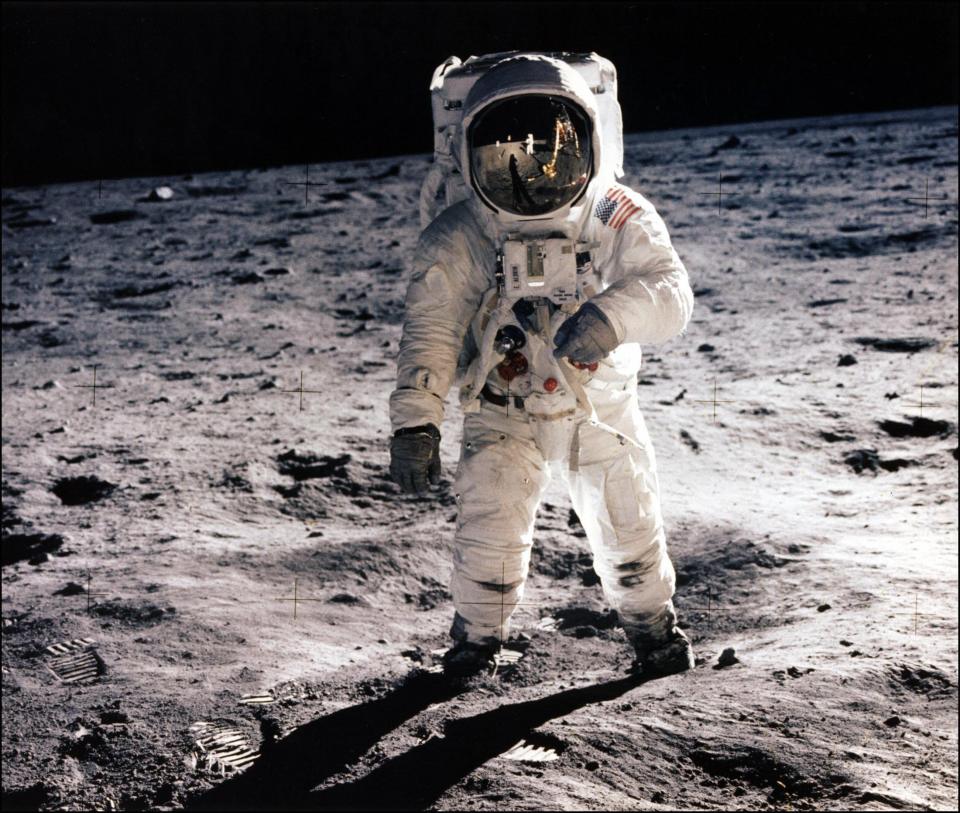Apollo 11 Moon Landing’s 50th anniversary, fascinating facts you didn’t know about the landmark space mission
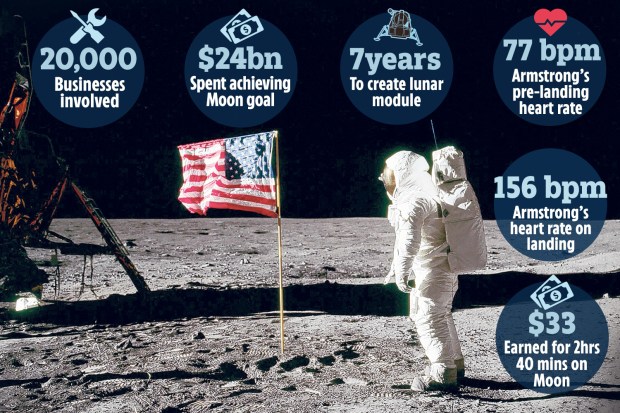
MILLIONS of people all over the world were gripped by the first lunar landing 50 years ago today – and now Sun journalist Ian Passingham has written a day-by-day account of the event.
Apollo 11: The Moon Landing in Real Time features amazing facts about the landmark space mission. Here are some of the best.
The planting of the Stars and Stripes on the Moon was controversial. In 1967 the US and Soviet Union had signed the Outer Space Treaty forbidding territorial claims.
Neil Armstrong, the first person to walk on the Moon, said they would investigate anything “of unusual interest”. He said: “If it were an animal I’m sure we’d have a look – or maybe we’d go the other way!”
Asked if Armstrong and Apollo 11 co-pilot Buzz Aldrin had suicide pills in case they were stranded, Nasa said the men did not want them.
Some scientists feared Apollo 11 would bring back harmful lunar organisms. Concerns were fuelled by 1969 novel The Andromeda Strain by then-unknown author Michael Crichton who went on to write Jurassic Park.
A gardener called an ITV Moon phone-in to ask if lunar soil would help improve his prize 85lb pumpkin.
A mini seismic station was so sensitive it registered the astronauts dumping equipment on the Moon. Armstrong told Mission Control: “You can’t get away with anything any more, can you?”
Judge TJ Towns of Wollongong, Australia, had a TV brought into his court so he could watch. He asked a witness to move a little to one side so his view wasn’t obscured.
As Eagle touched down, state radio in Moscow was reviewing sports and TV was showing a film about an opera singer. The landing was revealed six minutes into the radio news.
Armalcolite, a new mineral found on the Moon, was named after ARMstrong, ALdrin and COLlins.
Media commentators questioned whether Armstrong had enough charisma for his role. Nasa Medical
Director Dr Charles Berry defended him, saying: “He gives the impression of being cold but I attribute this to bashfulness. When you know him, he can be a very warm person and has a great deal of humour. Almost everybody has seen Neil blush. He appears to be very sensitive.”
Armstrong’s mother Viola feared the Moon’s surface might be like quicksand. She told a press conference: “I was worried they might sink in too deep.”
On landing day, around 150 reporters were outside Armstrong’s home in El Lago, Houston. Asked if it was the greatest moment of her life, wife Jan replied: “No. When I was married – that was the greatest moment.”
Armstrong and Aldrin spent around 150 hours acquiring geology skills so they knew what rock samples to look for. It included field trips to Hawaii, Alaska, Iceland, Mexico, Moscow and volcanoes in Oregon and California.
The Soviet Union launched an unmanned Moon probe three days before Apollo 11. Luna 15 was to retrieve samples and return them home before the Americans. The probe crash-landed on the Moon.
The Moon walk was brought forward by more than three hours when the astronauts cut short a rest period because they were “too excited to sleep”. Neil Armstrong stepped on to the surface at 3:56am UK time on July 21. The Moon walk had been due at 2am US eastern time but began at 10:56pm. Mission Control told the astronauts: “You guys are getting prime time TV!” Nasa later denied the decision came after pressure from TV networks.
Aldrin, a Presbyterian lay reader, controversially took sacramental bread with him in secret so he could take communion on the Moon.
President Richard Nixon later joked about his two-minute phone call to the astronauts: “I just hope they don’t charge me a toll on that call!”
The crew declared “Moon rocks” on a customs form at Hawaii’s Honolulu Airport on their return.
The two boxes of lunar samples were flown back to the US from the Pacific Ocean splashdown site in separate Air Force jets in case one crashed. Nasa bosses said the contents of the packages were worth “more than all the gold at Fort Knox”.
Fame changed the lives of Armstrong and Aldrin for ever. Aldrin’s wife Joan predicted: “After this is all over Buzz will still be the same person.” Jan, Armstrong’s wife said: “He’ll be the same Neil.” The Aldrins split in 1974 and the Armstrongs divorced in 1994. Michael Collins and wife Pat remained together until her death in 2014.
Lawyer Jenaro Gajardo Vera wrote to President Nixon and Nasa before the mission informing them he Owned the Moon. He had used a law in Chile stating that anyone could stake a claim on a property with no registered owner.
To keep the crew germ-free at their final press conference in Houston 12 days before launch, the media was kept 50ft from the stage and six blowers behind the astronauts kept away the air reporters were breathing.
Aldrin’s mother’s maiden name was . . . Marion Moon.
Richard Nixon pulled out of a planned eve-of-launch dinner with the astronauts after Nasa medical experts warned the President that he might pass on germs.
Nasa scientists believed a manned flight to Mars would be made by 1986. Days before Apollo 11, Dr Ernst Stuhlinger unveiled a Mars mission featuring an atomic-powered rocket which could fly at 112,000mph – five times faster than Apollo. Colleague Dr Kurt Debus claimed: “A landing by man on Mars is an unavoidable future event.”
ASKED how she would spend her time during the mission, Joan Aldrin said: “I’m going to have all the rugs cleaned, paint the walls and wash the windows. Anything to keep busy.”
Britain’s US ambassador John Freeman snubbed his invitation to the launch. A British Embassy spokesman said: “He attended the launch of Apollo 10. When you have seen one launch, you have seen them all.”
Photographer John Gontner beat launch day traffic jams at Cape Kennedy by using a carrier pigeon to fly film back to his office at Daytona Beach. The bird was released 15 minutes after lift-off and took 78 minutes to make the 60-mile journey. Gontner’s images made the evening edition.
After their return, the astronauts spent nearly three weeks in quarantine with a dozen Nasa backroom staff. Two unlucky Nasa technicians had to be isolated after they were accidentally exposed to lunar samples.
Waiting lists for proposed commercial space flights boomed after the mission. Pan Am reported nearly 17,000 reservations.
The crew’s food was the best on any space flight up to that point. Mostly it had to be rehydrated. In the early days of space flight, ideas for feeding astronauts included growing food on board, making parts of spacecraft edible and taking live animals to kill and eat.
A Japanese TV presenter spent the mission eating only three space meals a day and presented his show in a spacesuit. He later said: “I was hungry 20 minutes after each meal.”
Philosopher Bertrand Russell feared the landing would lead to a war in space. The Welsh aristocrat, who died at the age of 97 six months after the Apollo 11 mission, warned: “Men will land from Russia and the United States, each with an H-bomb and each intent upon exterminating the other.”
Space bosses were confident they would have colonies on the Moon by 1978. Nasa Advance Planner Dr Rodney Johnson predicted: “A lunar colony will grow from a few relatively simple shelters, labs, power supplies and life-support units to larger numbers of more complex ones.”
Harrods in London caused fury by turning off TV sets in the electrical department as more than 100 people tried to watch the lift-off. Manager Stanley Rattenbury said: “The customers congregated to such an extent that it was dangerous.”
most read in science
Astronaut Charlie Duke became the youngest man to walk on the Moon with Apollo 16. During one Apollo 11 telecast the Mission Control capsule communicator mistook the Moon for the Earth, telling viewers: “The focus is a little bit out. We see Earth in the centre of the screen.” After a brief silence, Buzz replied: “I believe that’s where we just came from!”
A fortnight after Apollo 11’s return, the world saw close-up photographs of Mars taken by two Nasa Mariner probes. Scientist Dr Robert Sharp remarked on the rugged landscape: “Mars is a gal who wears no cosmetics.”
- GOT a story? Ring The Sun on 0207 782 4104 or WHATSAPP on 07423720250 or email [email protected].




